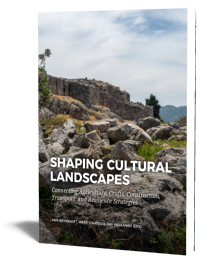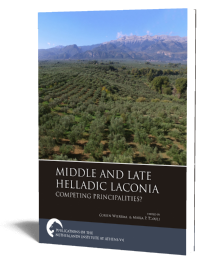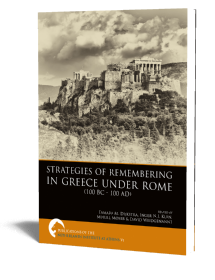Abstract:
Landscape-archaeology projects have had a significant impact on our understanding of the deep history of the Greek countryside, but have overwhelmingly been limited to the plains and have rarely placed the Ottoman period at their core. This investigation of Zagori in Northwest Greece explores the archaeology and cultural history of a mountainous area that famously thrived in the Ottoman period.
This engagement with an upland region in the early modern period sheds light on previously neglected aspects of Greek landscape history. The inclusive methodology combines critical historiography, archival research, oral history and landscape-archaeological survey to achieve novel insights into this montane landscape and its distinctive history and cultural heritage.
Contrary to the dominant nationalist historiography, it demonstrates the continuity of regional elites from the Byzantine to Ottoman period in Epirus and reveals how this shaped settlement patterns and elite/non-elite sedentary adaptations in this montane region. It also gives voice from within to the labour-intensive, engendered, cultural landscape of the Zagori peasantry and challenges the view of external scholarly observers that mountains support a predominantly pastoral way of life.
Contents
Chapter One: Zagori today
Chapter Two: An alternative version of history
Chapter Three: Ottoman Archaeology in Greece
Chapter Four: An Inclusive Dataset and Methodology
Chapter Five: New realities. The local narrative, Ottoman historiography and archaeology
Chapter Six: A topography of adaptations. Archaeological insights into the Zagori (14th-19th c.)
Chapter Seven: Zagori through the 16th-century Ottoman imperial registers
Chapter Eight: Non-elite landscapes
Chapter Nine: Synthesis

Dr.
Faidon Moudopoulos-Athanasiou
Faidon Moudopoulos-Athanasiou graduated from the Department of History and Archaeology at the University of Crete in 2013. He completed his MA in Aegean Archaeology at the University of Sheffield (2014) focussing on the Bronze Age of the montane landscapes of Epirus. In 2016 he obtained an MA in Heritage Management from the University of Kent and the Athens University Business School. For this MA he received a research grant from the Piraeus Group Cultural Foundation and his thesis concerned the design of heritage education programs. In 2017 he won a White Rose College for the Arts and Humanities (WRoCAH – AHRC) competition award for his proposal to study the archaeology of early-modern Zagori (NW Greece) and began at the University of Sheffield his PhD research, which he completed in 2021. Throughout his PhD, he remained a Scholar of the A.G. Leventis Foundation, which also sponsored his research.
read more











